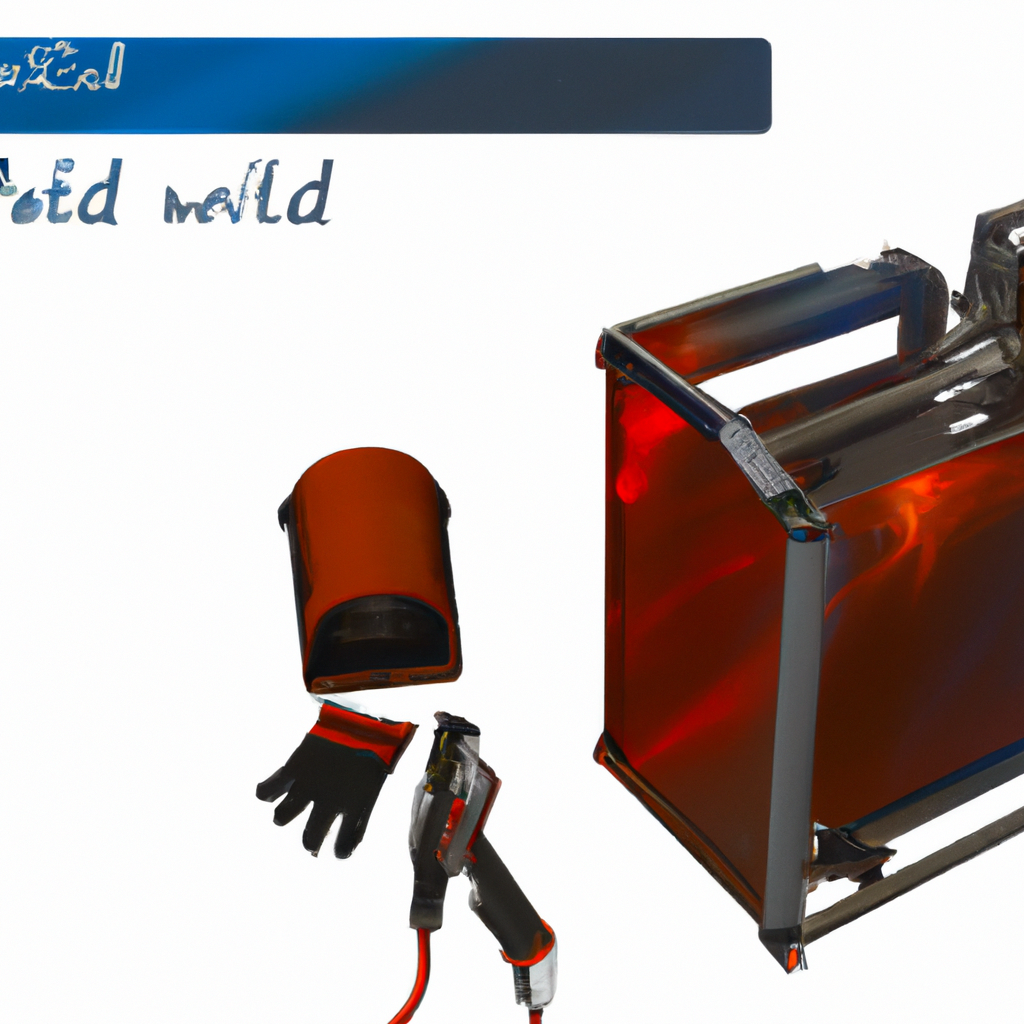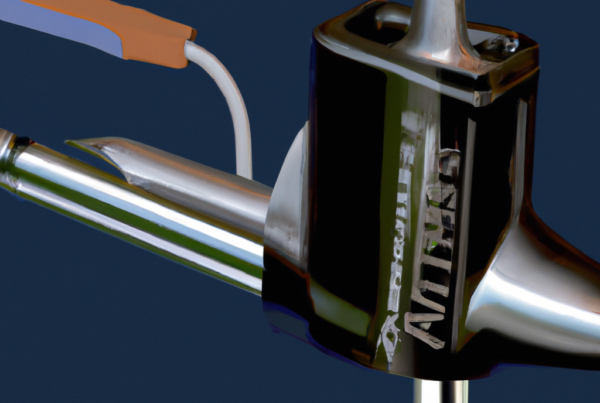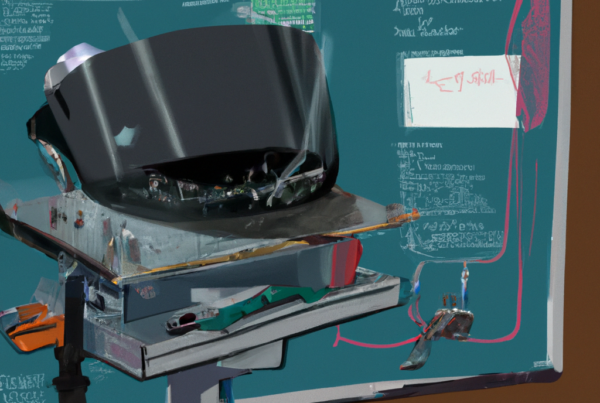Are you looking to buy a welder? Look no further! With so many welders on the market, it can be difficult to know where to start. As an industry expert, I can help you find the perfect welder for your needs. From MIG, TIG, and Stick welders to multiprocess welders and more, I can help you pick the best welder for your project. Plus, I can offer you advice on the latest welding techniques and safety tips. So don’t wait any longer – get started today on finding the perfect welder for your needs.

1.What Types of Welders are Available?
Welders are an essential tool for many different types of fabrication and repair projects. There are a variety of welders available to suit any job, from small hobby projects to large industrial applications. The most common types of welders include:
- Stick Welders: Stick welders use a consumable electrode, usually made of flux-coated steel or stainless steel, to create a weld. This type of welder is relatively inexpensive and is ideal for basic, light-duty welding jobs, such as welding thin sheet metal.
- MIG Welders: MIG welders use a continuous wire electrode fed through a welding gun, along with a shielding gas, to create a weld. This type of welder is more expensive than a stick welder, but is more versatile and can be used for a variety of heavier-duty welding jobs, such as welding thicker steel plates.
- TIG Welders: TIG welders use a non-consumable tungsten electrode to create a weld. This type of welder is the most expensive and is the most precise, making it ideal for intricate welding jobs, such as welding aluminum or stainless steel.
- Flux-Cored Arc Welders: Flux-cored arc welders use a consumable electrode with a flux-filled core that melts as the welding current is applied. This type of welder is similar to a stick welder, but is more powerful and can be used for a variety of heavier-duty welding jobs, such as welding thick steel plates.
Welders can be purchased from a variety of sources, including hardware stores, home improvement centers, welding supply stores, and online retailers. When purchasing a welder, it is important to consider the type of welding job
2.What are the Benefits of Owning a Welder?
Owning a welder can provide many benefits, such as:
- Increased flexibility and convenience – being able to work on projects from the comfort of your own home, or wherever else you choose.
- Cost savings – no need to pay for materials or labor costs for welding projects.
- Safety – welders are designed to be safe and easy to use, reducing the risk of injury.
- Versatility – welders can be used for a variety of projects, from small home repairs to large industrial projects.
- A sense of accomplishment – completing welding projects can be rewarding and satisfying.
If you’re looking to purchase a welder, there are many online and local stores that offer them. Many welding supply stores have a wide selection of welders in various sizes and styles to fit your needs. Additionally, you can often find used welders at a lower cost, which can be a great option for those on a budget.
3.What are the Different Types of Welding Processes?
The different types of welding processes include:
- Shielded metal arc welding (SMAW)
- Gas metal arc welding (GMAW)
- Flux cored arc welding (FCAW)
- Gas tungsten arc welding (GTAW)
- Submerged arc welding (SAW)
- Plasma arc welding (PAW)
- Oxyfuel gas welding (OFW)
Each type of welding process has its own advantages and disadvantages. Depending on the material and application, different welding processes are used. Welders can be purchased from local hardware stores, welding supply stores, and online retailers. It is important to read the specifications of the welder and ensure that it is suitable for the job before purchasing.
4.What Factors Should Be Considered When Choosing a Welder?
When choosing a welder, there are several factors to consider:
- Type of welder: Different welders are used for different types of welding. Consider the type of metal, thickness, and environment you will be working in when selecting a welder.
- Price: Determine your budget and select a welder within that range.
- Durability: Look for a welder with a durable body and parts that will last.
- Safety features: Select a welder that has safety features such as an overheat protection system and a flash guard.
- Performance: Consider the welder’s output level. Quality welders will have an output level of around 80 (maximum 120).
Once you have considered these factors, you can begin looking for a welder. There are many online stores and suppliers that offer quality welders at affordable prices.
5.What are the Different Types of Welders?
There are various types of welders available for purchase, each with its own unique features and capabilities. Some of the most common types of welders include:
- Arc welders: these are the most common and widely used welders for general fabrication. They use an electric current to create an arc between the metal and a welding rod, allowing for a strong and reliable weld.
- MIG welders: MIG welders use a wire feed and a continuous current to create a strong and reliable weld, making them perfect for high-precision applications such as automotive repair.
- TIG welders: TIG welders use a tungsten electrode to create an arc between the metal and the gas, producing a high-quality and consistent weld.
- Stick welders: Stick welders use a welding rod and a high-voltage electric current to create a strong weld.
- Flux-cored arc welders: these welders use a flux-cored wire and a continuous current to create a strong and reliable weld.
The type of welder you need will depend on the type of project you are working on. When deciding which welder to purchase, it is important to consider the size and type of project you are doing, as well as the available budget. There are many places to buy welders, including online stores, welding supply stores, and hardware stores.
6.What Safety Precautions Should be Taken When Using a Welder?
Safety is paramount when using a welder, and there are a few precautions that should always be taken to ensure the safety of both the user and any nearby individuals. To start, always make sure that the work area is clear of any flammable materials and that the welding area is properly ventilated. Additionally, it is important to wear protective gear, such as a welding helmet, gloves, and a fire-resistant apron and jacket. Furthermore, it is important to never look directly at the arc or wear any loose clothing or jewelry. Lastly, it is essential to turn off the welder after each use and unplug it from the power source.
7.What are the Different Types of Welding Materials?
Welding materials are used in a variety of industries, from automotive to aerospace, and come in a variety of forms for different applications. Here are the most common types of welding materials:
- Steel: Steel is the most commonly used material for welding and is used for joining metal objects. It is used in a variety of welding processes, such as MIG, TIG, and Stick.
- Aluminum: Aluminum is a lightweight metal that is used for joining parts and components. It is used in welding processes such as MIG and TIG.
- Stainless Steel: Stainless steel is a corrosion-resistant material that is used for welding in many industries. It is used in MIG, TIG, and Stick welding.
- Copper: Copper is a soft metal that is used in welding for joining parts and components. It is used in TIG and MIG welding.
- Nickel Alloys: Nickel alloys are used for welding in a variety of industries, including aerospace and automotive. It is used in MIG and TIG welding.
- Titanium: Titanium is a lightweight metal that is used for welding in aerospace and automotive applications. It is used in MIG and TIG welding.
These materials can be purchased from welding supply stores and online retailers. Many of these materials can also be found in specialty welding shops. Before purchasing welding supplies, it is important to determine the type of welding process that will be used and the type of material that needs to be welded.
8.What Are the Different Methods of Purchasing a Welder?
There are several methods for purchasing a welder:
- Online – many manufacturers and retailers offer welders for sale online. This is often the most convenient and cost effective way to purchase a welder.
- Retailers – Local hardware stores, welding supply stores, and other retailers may carry welders for sale.
- Auctions – Online auctions are a great way to find used welders at a fraction of their original cost.
- Manufacturers – Many welders are available directly from the manufacturer.
- Classified Ads – You may be able to find used welders listed in classified ads in newspapers or websites such as Craigslist.
It is important to do research and compare prices before purchasing a welder to ensure you get the best deal.
9.Where Can I Buy a Welder?
There are several places to buy welders, depending on the type of welder you are looking for. Here are some of the most popular places to buy welders:
- Local hardware stores – many local hardware stores carry a variety of welders, from stick welders to MIG welders and more.
- Online retailers – there are a number of online retailers that sell welders, from well-known companies such as Amazon to specialty retailers.
- Welding supply stores – welding supply stores are a great resource for welding equipment, and they often have welders in stock.
- Auction sites – auction sites such as eBay and Craigslist can be a great place to find used welders at a discounted price.
When buying a welder, it is important to make sure that you are getting the right type of welder for the job. It is also important to make sure that you buy from a reputable source, as there are a lot of counterfeit welders out there. Additionally, you should always read reviews and talk to other welders before making a purchase.
How Much Does a Welder Cost?
The cost of a welder will depend on the type of welder you are looking for and the features you need. Generally, the cost of a welder can range from $200 to $2,500. Here are some of the factors that can affect the cost of a welder:
- Type of welder – MIG, TIG, stick, flux-core, etc.
- Power output – higher power welders cost more
- Features – such as digital displays, adjustable settings, etc.
- Brand – different brands will have different prices
Where to buy a welder? Welders can be bought online or from a local store. Online stores usually offer a wider selection of welders and often have better prices. Local stores may be able to offer more personalized advice and help with repairs or maintenance.



